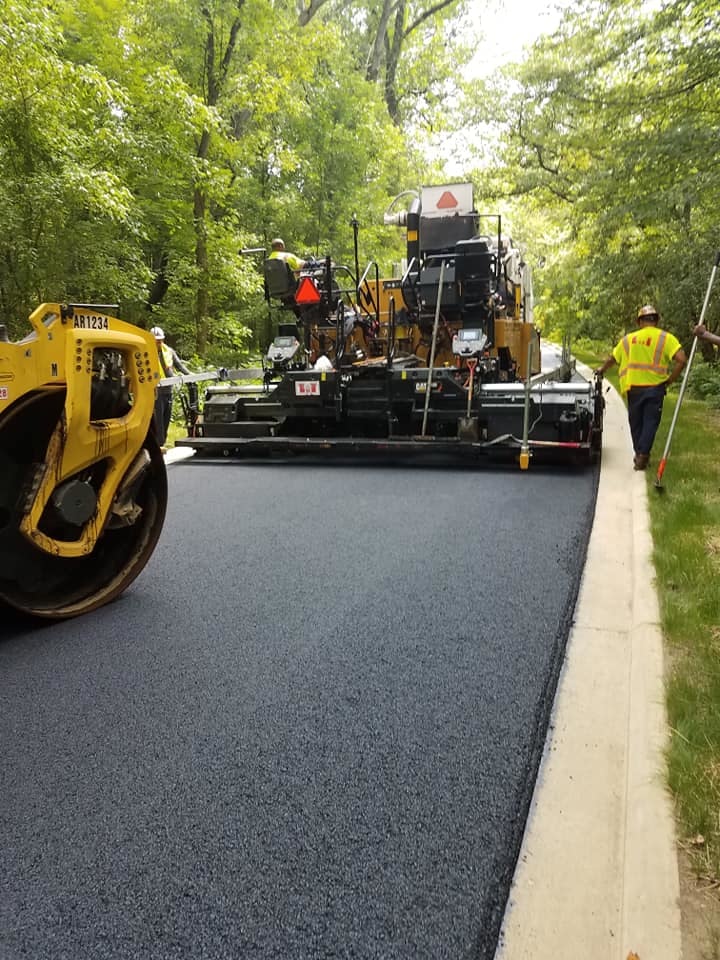Checking Out the Environmental Advantages of Hot Mix Asphalt
The usage of Warm Mix Asphalt in facilities projects offers an engaging instance for lasting advancement and environmental stewardship. By diving into the complex details of its production procedures and the innovative use of recycled materials, a much deeper understanding arises of just how this innovation goes beyond mere surface applications. The ecological advantages of Hot Mix Asphalt prolong far beyond preliminary impacts, providing a nuanced perspective on how this product can lead the means for a greener future.

Minimized Greenhouse Gas Emissions
The production procedure of Hot Mix Asphalt involves heating up the combination of accumulation and asphalt binder to high temperature levels. By integrating reclaimed asphalt pavement and recycled asphalt tiles right into the mix, the demand for virgin products is decreased, leading to energy savings and lowered discharges associated with removal and handling.
Research studies have revealed that Hot Mix Asphalt sidewalks have a smaller carbon impact over their life cycle compared to various other pavement options. The longevity and recyclability of Hot Mix Asphalt better boost its ecological benefits by reducing the need for constant maintenance or substitute, consequently conserving sources and minimizing exhausts connected with reconstruction tasks.
Energy Efficiency and Conservation
The manufacturing procedure of Warm Mix Asphalt not just reduces greenhouse gas emissions but also contributes significantly to energy efficiency and conservation initiatives. Power performance is a crucial benefit of Hot Mix Asphalt production contrasted to various other sidewalk kinds. The resilience of Hot Mix Asphalt decreases the frequency of maintenance and reconstruction, leading to lasting power cost savings.
Lasting Sidewalk Solutions

One secret facet of lasting sidewalk remedies is making use of recycled materials such as reclaimed asphalt pavement (RAP) and recycled asphalt shingles (RAS) By incorporating these products right into the asphalt combinations, the demand for virgin resources is reduced, leading to reduced power usage and greenhouse gas emissions throughout manufacturing. In addition, the reuse of these materials aids divert waste from garbage dumps, contributing to a much more round and lasting economic climate.
Moreover, sustainable pavement services concentrate on optimizing pavement layout to boost efficiency and longevity. Strategies such as cozy mix asphalt (WMA) and stone mastic asphalt (SMA) improve the sturdiness and resilience of pavements, lowering the need for frequent repairs and replacements. By carrying out these innovative strategies, facilities designers can produce pavements that not only fulfill high-performance requirements however also reduce their environmental impact.
Minimized Environmental Effect
With a focus on sustainability and eco-conscious techniques, pavement options reference are designed to lessen the ecological impact of building and construction and maintenance procedures. Warm mix asphalt, specifically, provides numerous benefits that add to decreasing the general ecological footprint of roadway infrastructure. One vital element is the recyclability of asphalt, which can be reused several times without endangering its quality. This characteristic aids in preserving natural deposits and reducing the quantity of waste sent out to garbage dumps.
Additionally, the next page manufacturing of warm mix asphalt discharges lower levels of greenhouse gases compared to other sidewalk materials, making it a more ecologically pleasant option. The energy effectiveness of asphalt plants has actually additionally improved throughout the years, bring about reduced fuel usage and reduced exhausts. Additionally, the smooth surface of hot mix asphalt reduces rolling resistance for vehicles, resulting in reduced fuel intake and decreased air pollution from car discharges.
Payment to Environment Modification Mitigation
Hot mix asphalt plays an important role my sources in mitigating climate adjustment via its lasting homes and reduced ecological effect. One considerable contribution to climate modification mitigation comes from the power effectiveness of hot mix asphalt manufacturing. Contrasted to various other pavement options, the manufacturing procedure for warm mix asphalt consumes less energy and produces lower degrees of greenhouse gases, hence lowering its total carbon footprint.
Moreover, warm mix asphalt's capacity to show sunlight, known as albedo, helps in minimizing metropolitan warmth island effects. By decreasing warmth absorption and retention, hot mix asphalt pavements can lower the demand for cooling in metropolitan areas, consequently reducing greenhouse gas emissions associated with power intake for cooling down functions.
Additionally, the durability and recyclability of warm mix asphalt further boost its climate change mitigation capacities. Regrading. The long life expectancy of asphalt sidewalks decreases the demand for regular repairs or substitutes, eventually lowering the carbon discharges linked to road upkeep activities. The recyclability of asphalt products reduces the need for virgin sources and lowers the environmental effect of pavement building, aligning with sustainable techniques for environment adjustment mitigation.
Final Thought
Finally, the environmental advantages of Warm Mix Asphalt demonstrate its substantial contribution to lowering greenhouse gas emissions, saving power, and decreasing environmental effect. This lasting sidewalk service aligns with climate modification reduction efforts, advertises source conservation, and improves framework growth. By utilizing recycled products, energy-efficient production processes, and resilient design, Warm Mix Asphalt plays a vital duty in promoting a more eco-friendly method to facilities construction.
The manufacturing procedure of Hot Mix Asphalt involves warming the combination of aggregate and asphalt binder to high temperature levels. By including reclaimed asphalt sidewalk and recycled asphalt shingles into the mix, the need for virgin materials is reduced, leading to energy cost savings and reduced discharges connected with extraction and handling.
One trick aspect of sustainable pavement solutions is the use of recycled materials such as redeemed asphalt sidewalk (RAP) and recycled asphalt tiles (RAS) Techniques such as warm mix asphalt (WMA) and rock mastic asphalt (SMA) boost the resilience and resilience of sidewalks, lowering the demand for regular repairs and substitutes. Contrasted to other pavement options, the production process for hot mix asphalt consumes much less energy and discharges lower levels of greenhouse gases, hence reducing its total carbon impact.